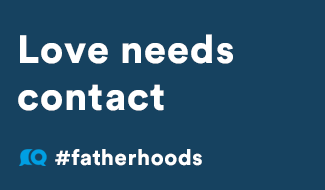Collaborative Law is a non-confrontational way helping divorcing/separating parties to resolve matters in an alternative manner to traditional proceedings involving the court and adversarial litigation.
This process is most suited to separating/divorcing couples who are going to be open about their financial positions, comfortable in discussing everything with the other present, who believe the other person has a similar wish and who want the outcome of financial settlement to be fair to both.
It generates a dignified and co-operative attitude to negotiation. The commitment of the separating couple and their lawyers is to achieving a settlement which will be as suitable as possible for the family as a whole – not just their client – without the threat of court proceedings.
You can move at your own pace and voice all things that are important to you without any behind the scenes negotiations or lengthy and aggressive correspondence between your lawyers.
You and your former partner meet together with your own collaboratively trained lawyers, openly communicate about what issues each of you would like to resolve and aim to work through these whilst all together in the same room. The process uses similar documentation (the Form E) to other processes to ensure there is full disclosure of financial information. Lawyers will often be advising their own client in front of the other person and their lawyer, so there can be no false claiming of “Well my lawyer says I am entitled to this” from the client and no “Well my client insists..” from the lawyer.
You can move at your own pace and voice all things that are important to you without any behind the scenes negotiations or lengthy and aggressive correspondence between your lawyers. You will both be able to ask questions and see and hear how they are answered directly, which often helps to build a rapport with all participants, who become engaged in the problem solving process of finding the best (or least worst) outcome for all of you, especially any children. Sometimes it even enables you to see things from your partner’s point of view, which can help you to work together to resolve your issues.
Your collaborative lawyer will be absolutely committed to helping you find the best solutions by mutual agreement, rather than through conflict as if for any reason the collaborative process breaks down, they will not be permitted to represent you in court.
It is also possible to bring in support from other independent advisors such as family consultants, independent financial advisors, child specialists etc who are familiar with the collaborative process to act as a neutral specialist should you require it.
What makes Collaborative Law successful is the control over the content and pace of the meetings and continuing contact with your former partner in a structured way. This enables you to have a better chance of resolving issues amicably and most importantly helps maintain a relationship as parents able to cooperate with each other for the benefit of the children.
Who is this approach suitable for?
Couples who want to resolve matters amicably and who can talk to each other, particularly with the help of other people.
Are all family lawyers’ collaborative lawyers?
No. A collaborative family lawyer needs to have special additional training. You should ask before instructing the lawyer if they do collaborative law. If the answer you are given is “no, but I try to settle cases without going to court anyway”, then the person is not a collaborative lawyer.
What happens if I get upset?
The training that collaborative lawyers receive enables them to deal with emotional issues and it is understood that people will get upset, angry and tearful at times. Many collaborative lawyers are also trained mediators who are well used to dealing with these issues. It is always possible to have breaks from the meeting if it begins to get too much.
How long will it take?
This will be up to you and your lawyers. There are no court delays and it is often a question of how quickly both parties want to proceed and how quickly all the information is available.
How much will it cost and is it more expensive?
The cost will depend on the hourly rates of your Solicitors. It can often seem more time intensive as most of the work is done in meetings, however in the long run the cost is very similar to Solicitor led negotiation through correspondence. It is cheaper in most cases than using the Court process, even if you settle at an early stage. It is a huge amount cheaper than going to Court for a Final Hearing which can easily cost tens of thousands of pounds.
What happens if we don’t reach agreement?
The process is relatively new and statistics are still being collated, however in my experience 90% of the cases I have dealt with collaboratively reach settlement. If you do not then it is still possible to go to Court. The financial information obtained is able to be used in Court, but not the negotiations. However you will need to instruct new lawyers in view of the lawyers commitment to the process referred to above.
Posted on January 10, 2018
















